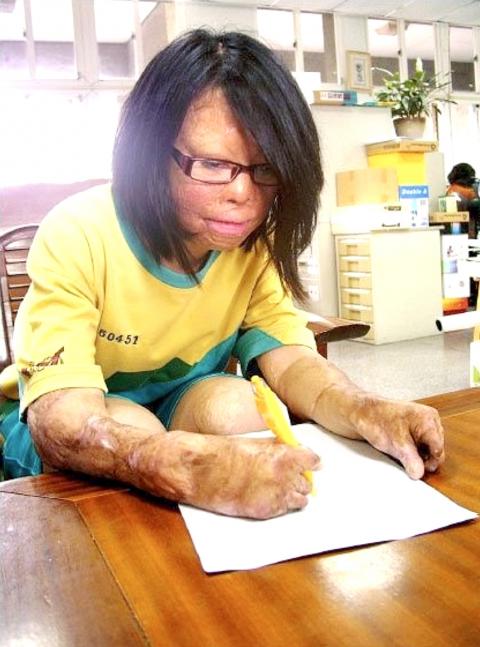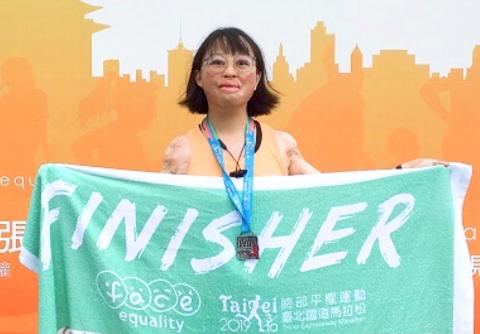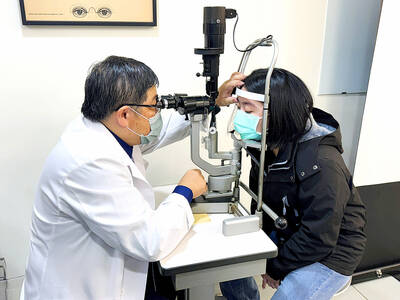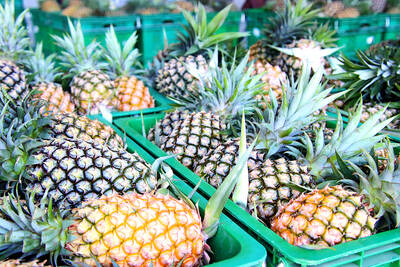“If my story gives encouragement to others, then perhaps God has entrusted me with this task!” Twenty-five-year-old Wu Cheng-yi said at this year’s Sunshine Scholarship Awards on Dec. 7.
Due to an accident when at nine years old, Wu suffered severe burns over 71 percent of her body, and her fingers were reduced to just 2cm-long tips protruding from her hands. She also lost her little brother in the accident. After receiving rehabilitation treatment at the Sunshine Social Care Foundation, and with the continued support and help of others, she is now studying toward a graduate diploma in social work. Wu says she hopes she can help more people in the future.
After her face, limbs and other areas of her body suffered serious burns, Wu was left fighting for her life. Two years after sustaining the injury, she was admitted into the Sunshine Social Care Foundation, receiving rehabilitation during the daytime and learning how to cope unaided during the evenings. She says that when she saw her parents doing all they could to ensure she received the attention she needed, the little girl determined not to become a burden on her family and threw all her energy into her recovery. She says that whenever she felt low, she took to writing to express her feelings. One year later, she was finally able to return to school and recommence her studies.

Photo courtesy of the Sunshine Social Care Foundation
照片:陽光基金會提供
However, returning to school presented her with a new set of challenges. She had to wear compression garments to school and looked different from the other children. She received unwanted attention from schoolmates: “Whenever class finished, a group of schoolmates would come over and stare at me as if I were an animal in a zoo.”
Cheng says the situation only improved when the foundation came to the school and gave an educational talk to teachers and students on the plight of burn victims. Due to Wu’s positive personality and optimistic outlook, she was able to make some good friends. She says, “From elementary school through to graduate college, I’ve always had a group of schoolmates keeping me company. They aren’t frightened of my scars and never pity me for my injuries.”
The foundation’s care center in central Taiwan held the Sunshine Scholarship Awards on Dec. 7, during which academic scholarships, totaling nearly NT$1 million, were given to 107 burn victims, people with facial injuries and their children. The foundation stresses that children with severe burns and facial injuries are more likely to suffer setbacks during the course of their academic lives compared to other students. The foundation has been providing academic scholarships for 36 years to allow sufferers and their children who possess exceptional talents to pursue further education and fulfill their academic potential.

Photo courtesy of the Sunshine Social Care Foundation
照片:陽光基金會提供
(Translated by Edward Jones, Taipei Times)
「如果我的故事能鼓勵別人,這也許是老天賦予我的任務吧!」二十五歲的吳承怡本月七日在陽光獎助學金頒獎典禮分享心路歷程。九歲時她因意外造成全身百分之七十一燒傷、十指萎縮剩二公分,也失去弟弟,後來入住陽光之家復健後重返校園,因為一路上受人幫助,現在就讀社工研究所,希望能幫助更多人。
承怡的臉部、四肢、身體嚴重燒燙傷,好不容易救回性命,傷後兩年入住陽光之家,白天復健、晚上訓練生活自理能力,她說那時看著父母為她四處求醫,小小年紀的她不想造成家人負擔就拚命復健,低潮時就不斷寫字抒發情緒,一年後終於重回學校讀書。
但是重返校園又是另一個挑戰,穿壓力衣、不同外觀,承怡受到同學關注,「每到下課就有一堆人跑來看我,就像動物園的動物。」直到陽光基金會到校宣導並與師生溝通傷友的處境才改善,她也因個性溫暖、樂觀結交到好朋友,「從國小到研究所,都有一群陪伴我的同學,不因疤痕害怕我,也不因我受傷而可憐我。」
陽光基金會中區服務中心七日舉行獎助學金頒獎典禮,頒發給燒傷與顏損者及其子女一○七人共近百萬元。基金會指出,燒傷、顏損的孩子比一般人更容易在求學過程遭遇挫折,三十六年來提供獎助學金給優秀、升學、特殊才藝的燒傷、顏損孩子,及陽光子女,鼓勵他們向學。
(自由時報記者蔡淑媛)

A: Recently, I’ve been seeing mosquitoes flying around in front of my eyes. The doctor said it’s the “flying-mosquito disease.” B: Flying mosquitoes? What a strange name. A: They’re actually called “floaters” in English, meaning floating debris. When fibrous substances in the vitreous body inside the eyeballs increase, floaters can appear in the visual field. B: Oh my goodness. Can you get rid of them? A: According to ophthalmologist Horng Chi-ting’s research, taking the enzymes of certain fruits is likely to help reduce floaters. A: 我最近一直覺得眼前有蚊子飛來飛去,結果醫生說是「飛蚊症」。 B: 飛蚊症?好奇怪的病名。 A: 英文名稱叫「floaters」, 也就是漂浮物的意思。 因為眼球的玻璃體中纖維化物質增多,導致視野出現漂浮物。 B: 天啊!要怎麼把蚊子趕走? A:

Bilingual Story is a fictionalized account. 雙語故事部分內容純屬虛構。 I stand by the Miluo River as dusk falls. The court betrayal is too much. I served Chu with loyalty. I forged alliances and fought corruption. But the whispers of jealous courtiers, the murmurs of treason, spoke louder. The king cast me out. The water looks calm. It promises peace. I step in. The river is cold against my legs. I hear shouts behind me — fishermen calling my name. I keep walking. The calls grow louder, but I do not turn around. The water rises to my chest. It pulls at me. I

In Taiwan, people can use a platform to rent a power washer for a weekend or share unused garage space for someone’s storage needs. These are examples of the sharing economy, a consumption model that has gained widespread adoption worldwide. This approach allows people to rent or share assets like cars, homes or even services, typically through online platforms. This innovative model poses a simple yet powerful question: why purchase infrequently used items when sharing is more practical? By making useful but idle resources accessible, the sharing economy turns them into sustainable opportunities. Internationally, platforms like Airbnb and Uber have popularized

A: What types of fruit enzymes should we take to help reduce eye floaters? B: According to a study published in the “Applied Sciences” journal by Taiwanese ophthalmologist Horng Chi-ting, pineapple, papaya and fig supplements can improve symptoms. A: Pineapples are in season now, so you should munch on more of those to get rid of floaters. B: Not quite. Enzymes can be damaged by our stomach acid if we eat the fruit directly. The doctor says taking fruit enzyme capsules is better for absorption. A: Most importantly, we should reduce our use of personal electronics to prevent floaters from